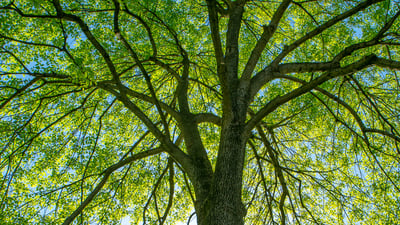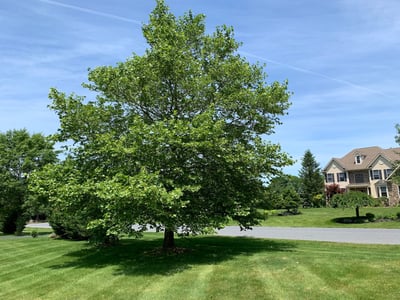


The landscaping around your property likely includes a variety of different plants. Whether it’s the perennials in your landscape beds or maybe a series of shrubs around your property, you want these plants to continue to thrive.
If any of them appear to be struggling, you might be wondering: Can you revive a dying plant?
In this article, we’ll talk about how to revive a plant. We’ll also talk about times that it simply might not be possible. It’s always important to take a realistic approach to caring for the plants around your property.
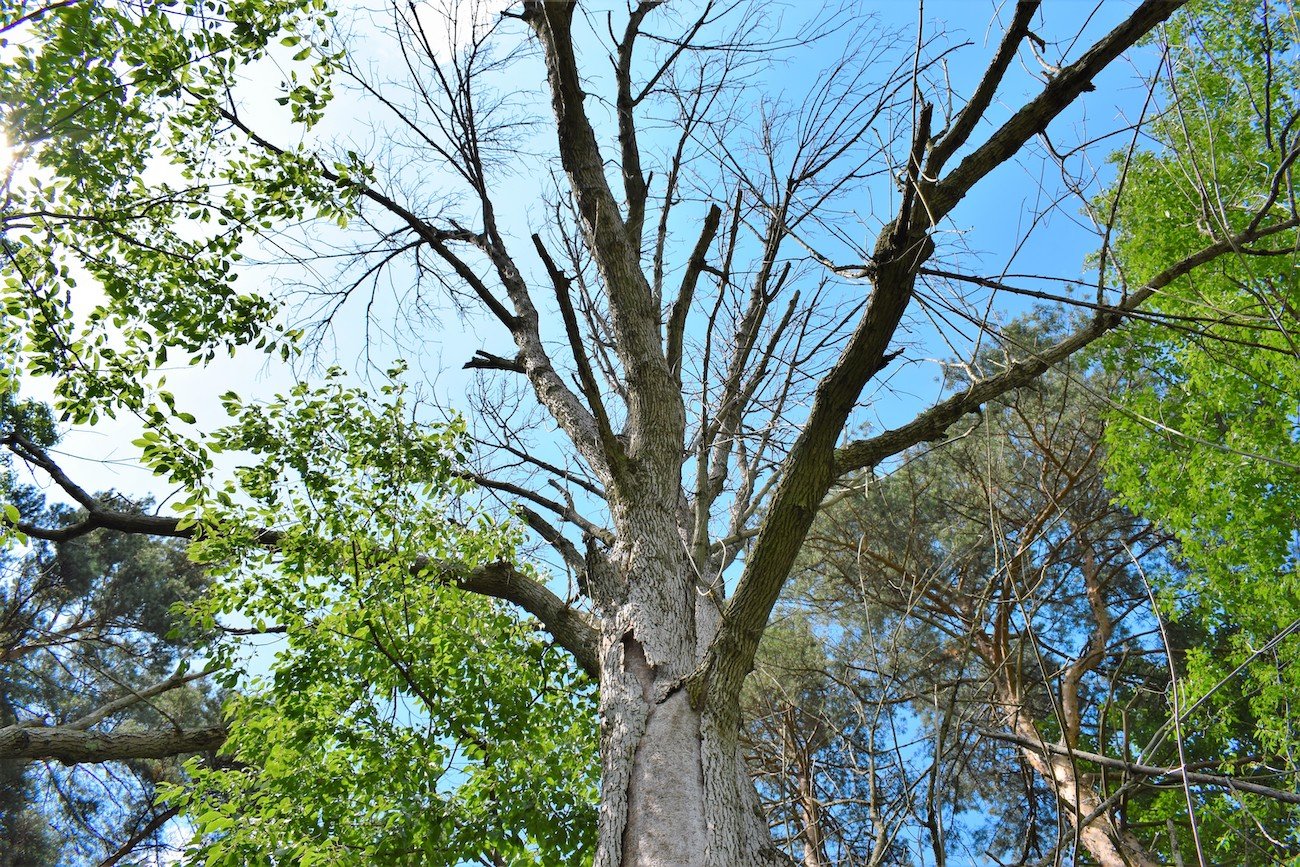
In this article, we will cover:
Signs your plant is dying
Common causes of plant decline
How to revive a plant
How to keep a plant from dying (plant health care tips)
Choosing plant health care in Louisville, KY
Sick or dying plants may exhibit a number of different symptoms when their health is struggling.
Some signs that your plant could potentially be dying include:
Sometimes with these signs, your plants may just be sick. Not all issues lead to plant death. But if a problem persists, it could lead to your plant dying.
If you are worried about how to bring a plant back to life and it has one or more of these symptoms, the key is to figure out what’s going on. We will talk about some of the most common causes of plant decline in our next section.
As far as saving dying plants, the key will be figuring out what caused the problem and determining how far gone it is. There are certainly going to be circumstances where it’s simply not possible to revive your plant.
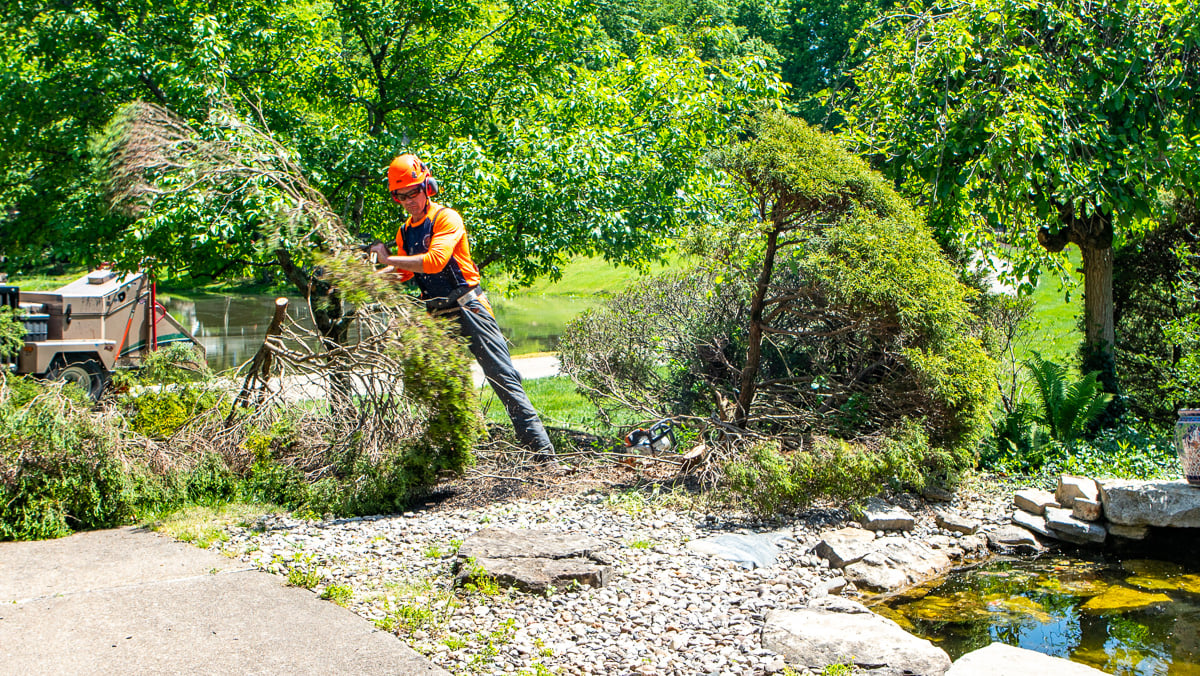
There are various reasons why your plants might be declining. Some are unavoidable while others can be controlled. Let’s look at some of these reasons.
All living things need water to thrive and your plants are no exception. But if your plants are receiving either too much or too little water, they might be struggling (or even dying).
Usually watering mistakes lead to discoloration. Plants might turn yellow and then brown. This can happen with both too much water or too little water. But usually you can tell the difference. A plant that is overwatered will also likely be surrounded by soggy soil. You might even notice moss, mushrooms, or algae growing in the ground.
A plant that is under-watered, on the other hand, will likely have dry and cracked soil. When plants aren’t getting enough water, their leaves might also wilt and fall off.
Another common cause of plant decline is pest problems. There are many landscape pests here in Louisville, KY that can cause trouble for your plants. Bagworms, scale insects, spider mites, and others can lead to major problems for your plants.
There are more than 55 common tree pests here in the Louisville region. Pests can damage plants and trees in many ways from chewing on leaves to boring holes in the bark itself.
Plant diseases are also lurking in the landscape. Here in Louisville, there are more than 25 common plant diseases that we see pop up. Landscape diseases can be serious and need to be diagnosed by a professional. At the very least, diseases can cause cosmetic damage that will leave plants unsightly.
Depending on what disease your plant is dealing with (and how severe the infection is), there might be solutions.
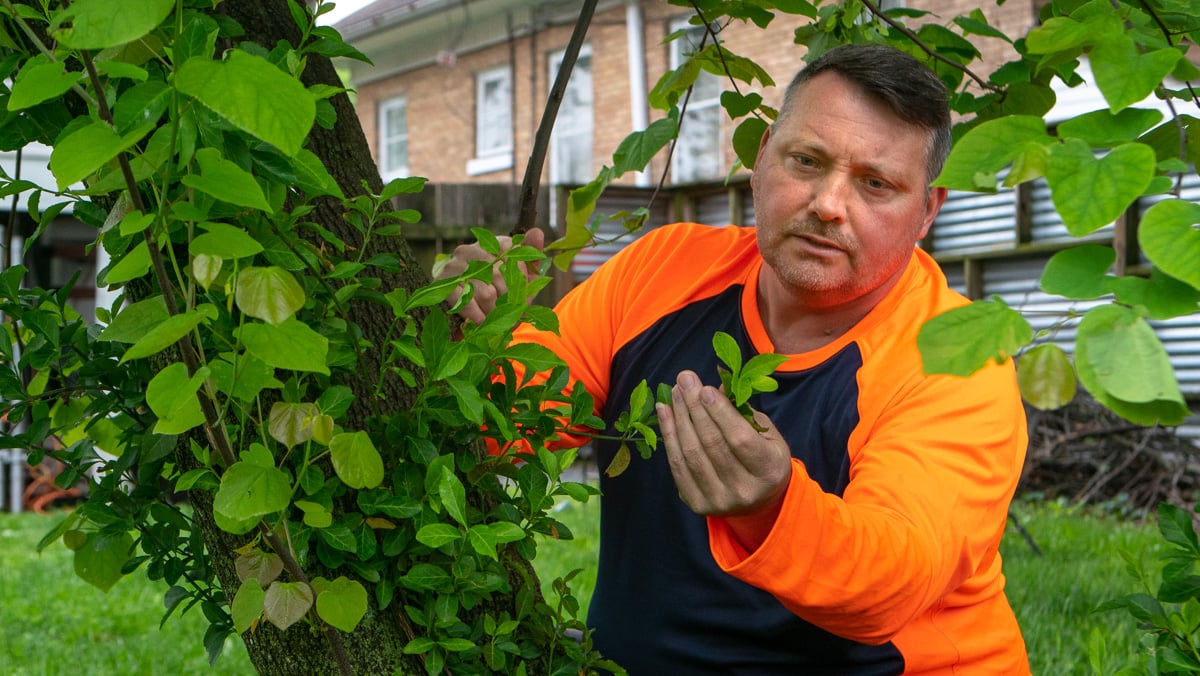
Extreme temperature fluctuations and other environment-related issues can also lead to a decline in your plant’s health.
There can also be issues with the location of your plant material. There is a saying in our industry that goes: “Right plant, right place.” It simply means that it’s important that you are installing a plant in a location on your property where it’s set up to get what it needs. Failing to do so can lead to ongoing struggles.
For instance, if you have a plant that requires access to sunlight and you plant it in a shady spot, it’s never going to perform well.
There could also be issues with the quality of the soil your plant is growing in.
Of course, sometimes a dying plant is the result of an accident. Maybe you had pool water leak into an area where you have plants and the chlorine soaked into the soil. Or, maybe there was a situation where a plant got pruned improperly or damaged in some other way. Various accidents can also lead to plant problems.

As you might have guessed, saving dying plants is going to boil down to correcting whatever caused their decline in the first place.
With something like watering, it can be a matter of correcting cultural habits. For instance, if you are the one failing to water your plant enough (or have overwatered your plant), it means making adjustments.
With diseases and pests, there are some solutions that can be implemented. Certain diseases and pests do have treatment options while others do not. It’s important that a professional perform an evaluation and determine what’s going on. The proper diagnosis is key.
As far as environmental conditions and accidents, reviving stressed plants will be a matter of how damaged they are. The trouble with some environmental issues is that they are not easily remedied.
For instance, if a plant was not installed in the “right place,” it may never perform well. No matter how much TLC you send its way, it simply may never perform the way you want it to.
Similarly, if your plant is severely damaged from an accident, it’s not necessarily going to be able to recover. It will really depend on how bad the damage is.
There are definitely going to be times when it makes more sense to replace a plant than keep trying to save it.

One of the best ways to protect your plants from problems is by investing in a Plant Health Care program.
While Plant Health Care is not a magic bullet or a cure-all solution, it can help prevent plants from succumbing to certain problems by boosting their overall health. You’ll feel confident that even if your plant faces an issue, it will be more likely to bounce back.
Put simply, plant health services combine fertilization, pest control, and disease control into a program that will help care for your landscape.
We know that Louisville homeowners don’t always give their plants much thought…unless there is a problem. Then, people want to know what they can do to fix an issue. But Plant Health Care is about being proactive and attempting to prevent many potential problems in the first place.
That’s a big deal as problems generally cost at least twice as much (if not more) than simply investing in routine care. Investing in preventative care makes a lot of sense.
You have to consider the fact that plants can succumb to problems (like pests and diseases) and end up dying. Now, you’ve got a hole in your landscape and will have to invest in new plant material to fill it. If it was an ornamental tree or shrub, that can be a very costly fix.
But it’s not solely about prevention. Plant Health Care programs often also include treatments for potential problems related to things like plant diseases and pests.
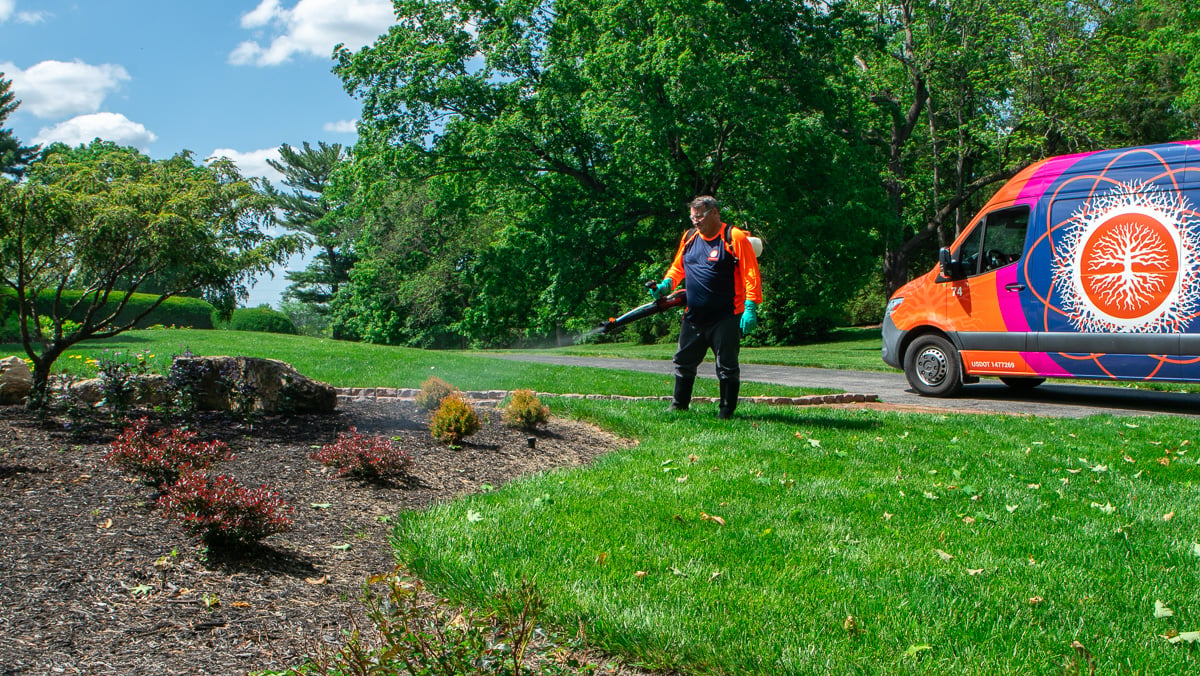
Saving dying plants can get complicated. In fact, even understanding what’s going on with your plants can be more than you bargained for. This is why working with a professional who is an expert in Plant Health Care makes a lot of sense.
When you invest in Plant Health Care services, you can ultimately save yourself the time, aggravation, and money involved in having to replace landscape plants and shrubs that have died. When plants are properly protected, you can save yourself from a lot of hassles and headaches of dealing with landscape problems.
You’ll also now have a plant health care expert on your side, helping make valuable recommendations in regard to the ongoing care of your landscape. This means letting go of worries associated with diseases, pests, and other problems, and knowing that your landscape is in good hands.
You deserve to be able to enjoy your landscape without the worries about saving dying plants. When you invest in Plant Health Care, you can gain valuable peace of mind that your landscape is as protected as possible.
If you’d like to learn more about plant health care for your Louisville home, get in touch, get your quote, and get back to enjoying your yard.


